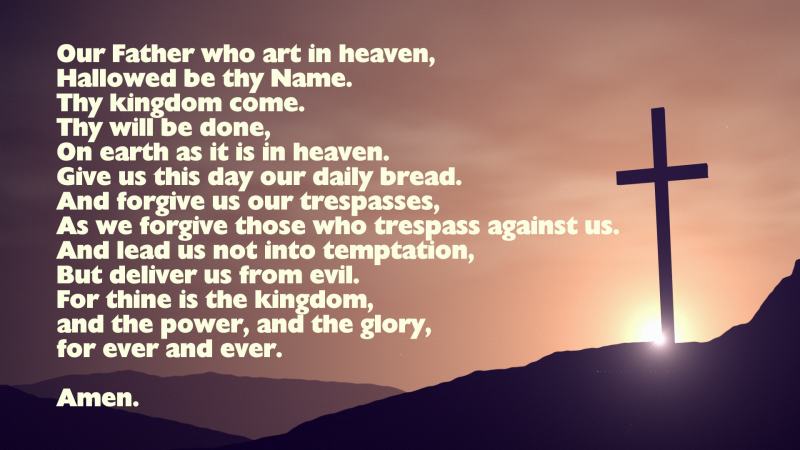"For Ever and Ever. Amen."
Commentary on the Lord's Prayer
This section is a line-by-line exploration of the Lord's Prayer through the writings of famous theological commentators.
The words "For ever and ever. Amen." fall immediately after the doxology – a section of worship to God (“For thine is the kingdom, The power, and the glory”). Here our hearts are asking that these things may be so forevermore. As we do so, we align ourselves with the very nature of God, who is eternal. The Lord is “I am who I am”, (Exodus 3:14-15). He has always been, is ever present, and will always be. He is the “First and the Last” and the “Alpha and Omega” (first and last letter of the Greek alphabet), a nature that Christ also declares about himself (John 8:58 and Rev 22:12-13), confirming that he is both man and eternal God.
The word “Amen” literally means “so be it”, but also carries with it a deeper meaning – that what has been spoken is reliable, trustworthy and true. Here we remind ourselves that the Lord’s Prayer is not "my Father" but “our Father”, so everything that has been prayed is declared to be true as a community of faith, whenever we pray this prayer together.
Matthew Henry
on "For Ever And Ever. Amen."
Lastly, To all this we are taught to affix our Amen, so be it. God's Amen is a grant; his fiat is, it shall be so; our Amen is only a summary desire; our fiat is, let it be so: it is in the token of our desire and assurance to be heard, that we say Amen. Amen refers to every petition going before, and thus, in compassion to our infirmities, we are taught to knit up the whole in one word, and so to gather up, in the general, what we have lost and let slip in the particulars. It is good to conclude religious duties with some warmth and vigour, that we may go from them with a sweet savour upon our spirits. It was of old the practice of good people to say, Amen, audibly at the end of every prayer, and it is a commendable practice, provided it be done with understanding, as the apostle directs (1Co 14:16), and uprightly, with life and liveliness, and inward expressions, answerable to that outward expression of desire and confidence.
Source: Matthew Henry's Commentary on the Whole Bible Volume V (Matthew to John)
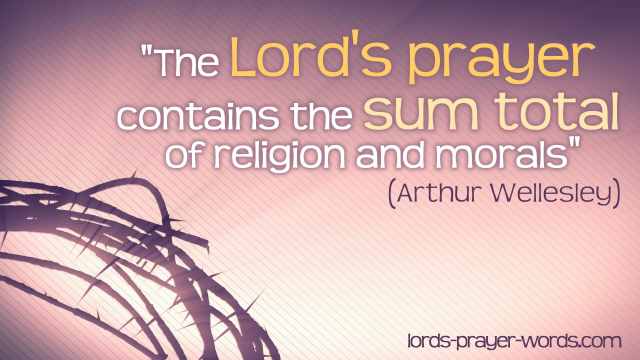
resources on this page
Adam Clarke's on "For ever and ever. Amen."
Albert Barnes on "For ever and ever. Amen."
(Commentary on Matthew chapter 6, verse 13)
read more commentaries and studies on the Lord's Prayer in our In-Depth Commentary Section
Adam Clarke on "For Ever And Ever. Amen."
For ever and ever.] EISTOUSAIWNAS, to the for evers. Well
expressed by our common translation-ever in our ancient use of the
word taking in the whole duration of time; the second ever, the
whole of eternity. May thy name have the glory both in this
world, and in that which is to come! The original word AIWN comes
from AEI always, and WN being, or existence. This is
Aristotle's definition of it. Ge 21:33. There
is no word in any language which more forcibly points out the
grand characteristic of eternity-that which always exists. It is
often used to signify a limited time, the end of which is not
known; but this use of it is only an accommodated one; and it is
the grammatical and proper sense of it which must be resorted to
in any controversy concerning the word. We sometimes use the
phrase for evermore: i.e. for ever and more, which signifies the
whole of time, and the more or interminable duration beyond it.
Mt 25:46.
Amen.] This word is Hebrew, and signifies faithful or true. Some suppose the word is formed from the initial letters of adoni melech neetnan, My Lord, the faithful King. The word itself implies a confident resting of the soul in God, with the fullest assurance that all these petitions shall be fulfilled to every one who prays according to the directions given before by our blessed Lord.
The very learned Mr. Gregory has shown that our Lord collected
this prayer out of the Jewish Euchologies, and gives us the whole
form as follows:-
"Our Father who art in heaven, be gracious unto us! O Lord our
God, hallowed be thy name, and let the remembrance of Thee be
glorified in heaven above, and in the earth here below! Let thy
kingdom reign over us now, and for ever! The holy men of old
said, remit and forgive unto all men whatsoever they have done
against me! And lead us not into the hands of temptation, but
deliver us from the evil thing! For thine is the kingdom, and
thou shalt reign in glory for ever and for evermore." Gregory's
Works, 4to. 1671, p. 162. See this proved at large in the
collections of Lightfoot and Schoettgenius,
Source: Adam Clarke's Commentary on the Bible
This doxology, or ascription of praise, is connected with the prayer by the word "for," to signify that all these things--the reign, power, and glory of God--will be manifested by granting these petitions. It is not because we are to be benefited, but that God's name and perfections may be manifested. His glory is, then, the first and principal thing which we are to seek when we approach him. We are to suffer our concerns to be sunk and lost sight of in the superior glory and honour of his name and dominion. We are to seek temporal and eternal life, chiefly because the honour of our Maker will be promoted, and his name be more illustriously displayed to his creatures. He is to be "first, last, supremest, best," in our view; and all selfish and worldly views are to be absorbed in that one great desire of the soul that God may be "all in all." Approaching him with these feelings, our prayers will be answered, our devotions will rise like incense, and the lifting up our hands will be like the evening sacrifice.
Amen. This is a word of Hebrew origin, from a verb signifying to be firm, secure, to be true and faithful. It is a word expressing consent or strong approbation, a word of strong asseveration. It means verily, certainly, so be it. It is probable that this word was used by the people in the synagogue to signify their assent to the prayer that was uttered by the minister. And to some extent, it was probably so used in the Christian church. See 1Cor 14:16. It may be proper to remark, that this doxology, "for thine is the kingdom," etc., is wanting in many manuscripts, and that its authenticity is doubtful.
(b) "from evil" Jn 17:15 (c) "For thine" Rev 5:12,13
Source: Barnes' New Testament Notes
Next: Go to our in-depth commentary on the Lord's Prayer
about the commentary writers
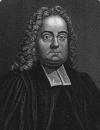 • Matthew Henry (1662-1714) was a non-conformist English clerygman. His commentaries on the scriptures are intended as a devotional guide to the Bible, rather than as a critical study.
• Matthew Henry (1662-1714) was a non-conformist English clerygman. His commentaries on the scriptures are intended as a devotional guide to the Bible, rather than as a critical study.
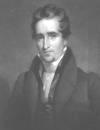 • Albert Barnes (1798-1870) was a Presbyterian minister and American theologian. His 'New Testament Notes' are invaluable in helping to understand difficult passages of scripture. Barnes frequently references the original Greek to reveal the meaning of the text.
• Albert Barnes (1798-1870) was a Presbyterian minister and American theologian. His 'New Testament Notes' are invaluable in helping to understand difficult passages of scripture. Barnes frequently references the original Greek to reveal the meaning of the text.
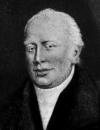 • Adam Clarke (1769 or 62 to 1832) was a Methodist minister and biblical theologian. His extensive commentary on the New Testament, at around 6000 pages long, is one of the longest works on the bible ever written by one person.
• Adam Clarke (1769 or 62 to 1832) was a Methodist minister and biblical theologian. His extensive commentary on the New Testament, at around 6000 pages long, is one of the longest works on the bible ever written by one person.

